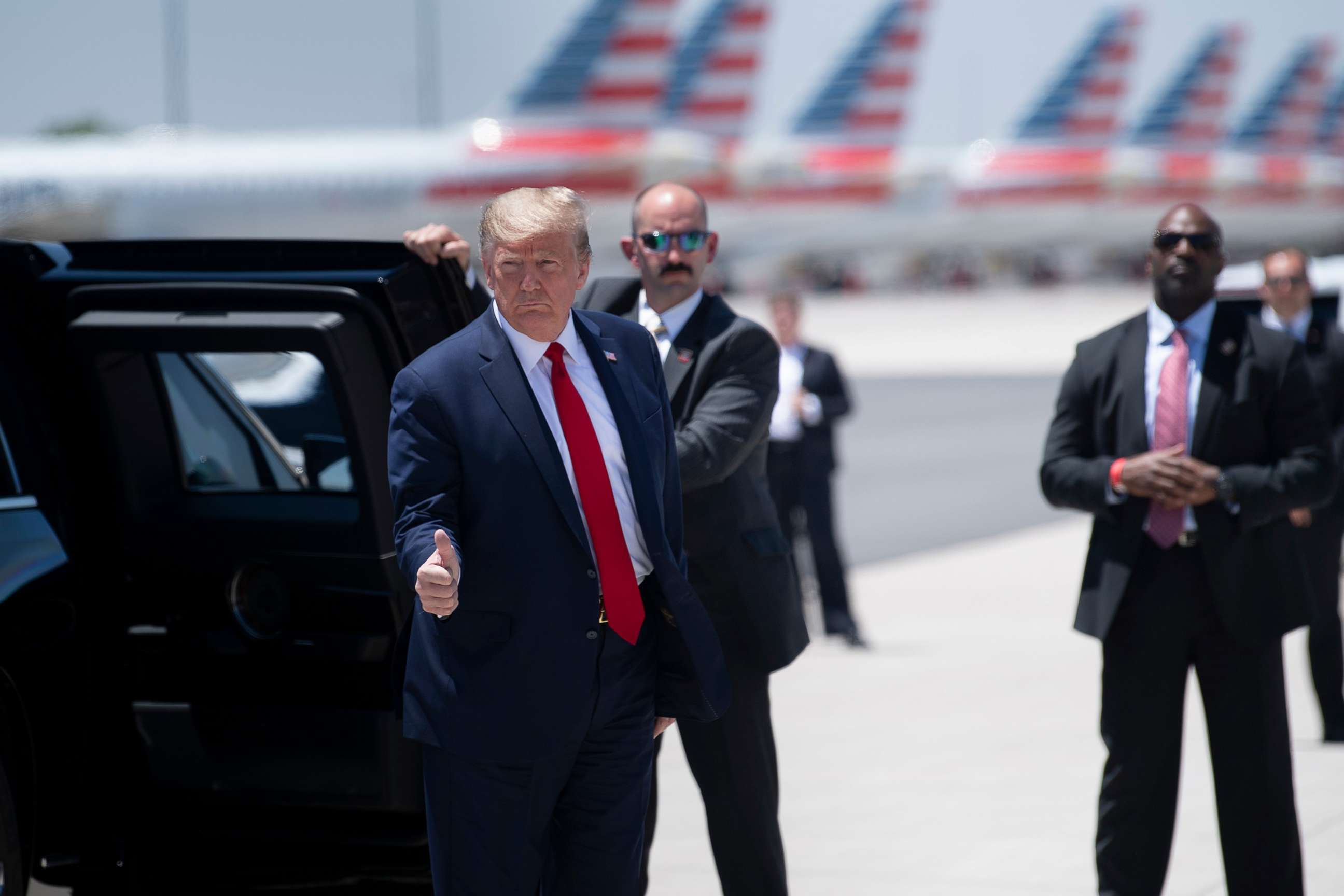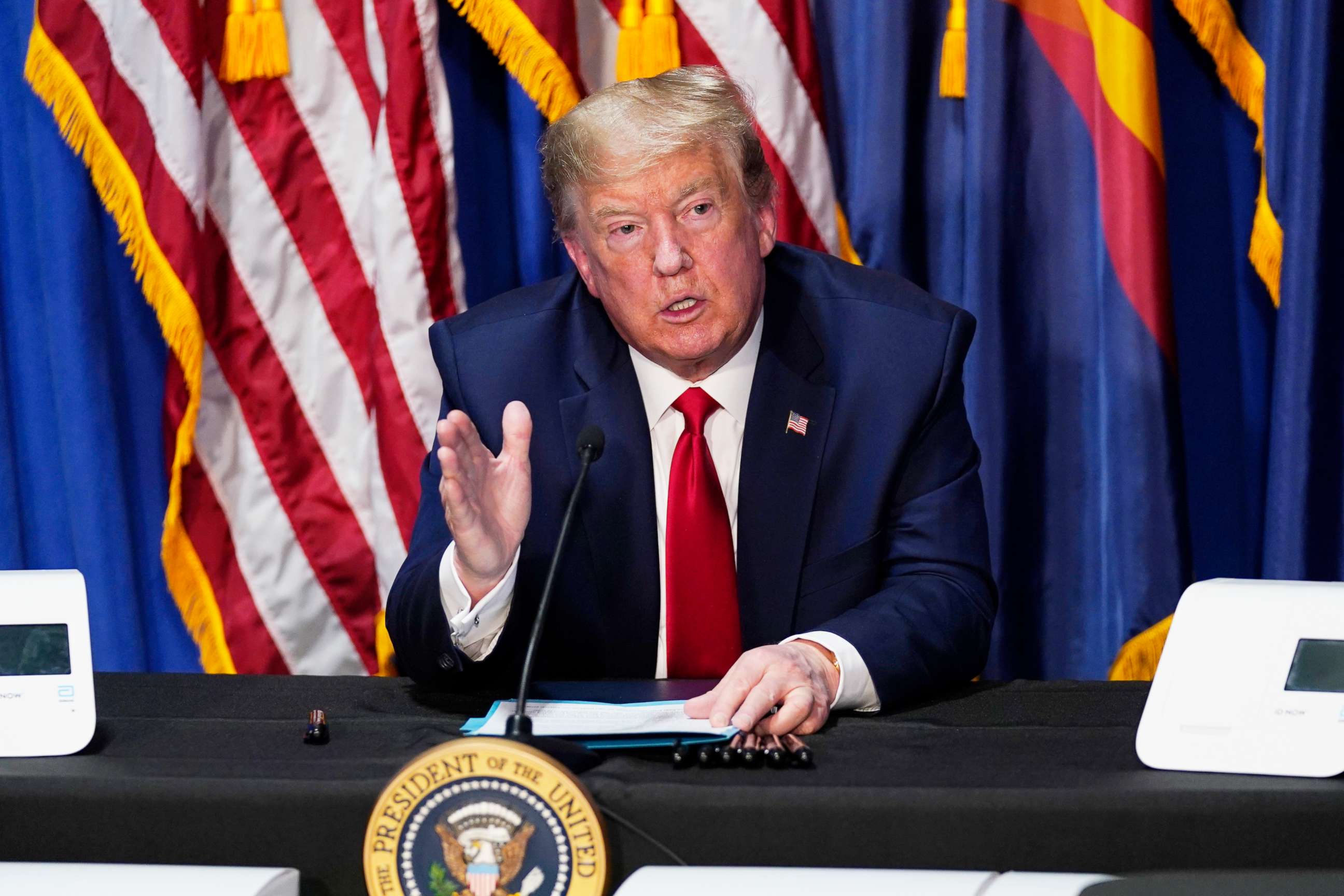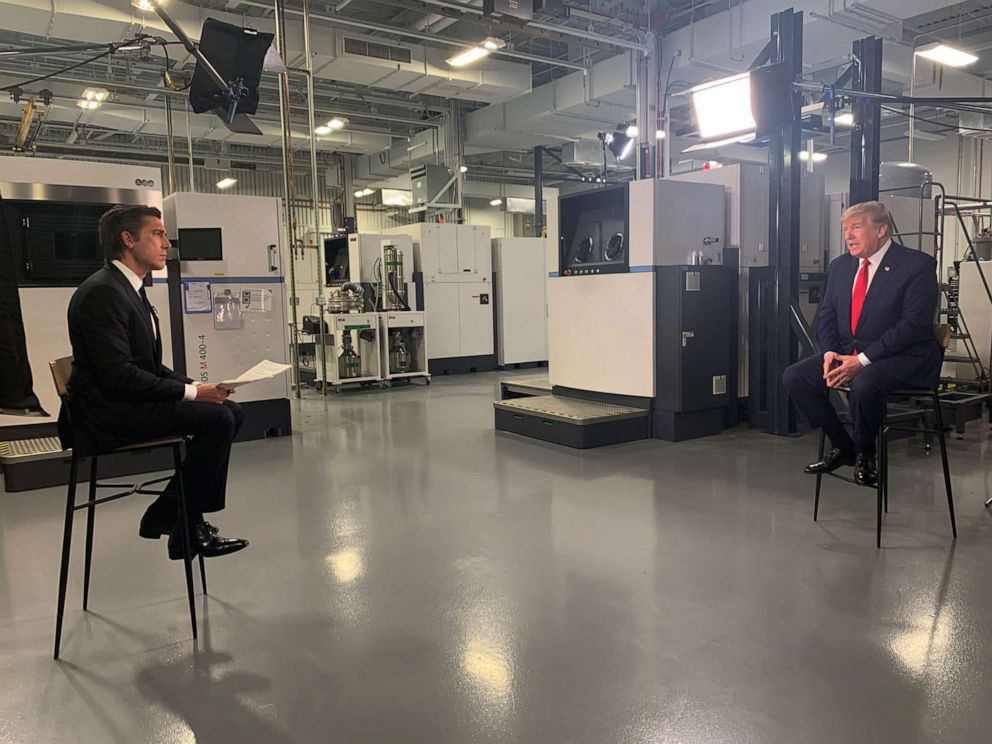Trump the relentless optimist: Pinning hopes on an economic rebound even amid virus
He takes a positive tone in face of a staggering death toll and unemployment.
Confronted with a staggering national death toll of more than 70,000 lives lost and catastrophic unemployment numbers brought on by the novel coronavirus, President Donald Trump has sought to paint an optimistic economic picture with an eye on his reelection bid in the fall.
“I think you’re going to have a tremendous transition, which is a third-quarter thing," he's said repeatedly. "I think you’re going to have a good fourth quarter. I think next year is going to be an incredible year, economically,” Trump said Wednesday, even as he also acknowledged that positive economic gains are no compensation for someone who has lost a loved one in the pandemic.
“You could never make up for that by saying, ‘Well, you’re going to have a great year next year, economically,’” he said.
Tune into ABC at 1 p.m. ET and ABC News Live at 4 p.m. ET every weekday for special coverage of the novel coronavirus with the full ABC News team, including the latest news, context and analysis.
Pinning his hopes on strong economic growth, the president has grown increasingly eager for the country to resume a semblance of normal life even as the virus persists and new recorded cases and death tolls continue to rise across much of the country.
“We have to be warriors," he's now taken to saying to Americans about the risks of sickness -- even death -- involved. "We can’t keep our country closed down for years. And we have to do something,” said Trump, who has at times referred to himself as a wartime president and has even compared the "invisible enemy" virus to two of the greatest acts of war ever perpetrated on U.S. soil.
"We went through the worst attack we've ever had in our country. This is really the worst attack we've ever had. This is worse than Pearl Harbor. This is worse than the World Trade Center. There's never been an attack like this," Trump said Wednesday.

The president has denied he’s declaring “Mission Accomplished” as President George W. Bush famously did early on in the Iraq War. But he has nonetheless moved to created a perception of victory by saying the U.S. is moving into a “new phase” in the fight against the virus -- one focused on reopening the country -- despite not meeting White House guidelines that states should first see a downward trajectory in cases within a 14 day period before beginning phased reopenings.
Epitomizing the president’s desire to turn the page on the virus was the decision to disband the White House coronavirus task force by the month’s end -- a decision he later reversed.
“We can’t keep our country closed for the next five years, you can say there will be a recurrence and there might be, you know, some doctors, most doctors will say that will happen, and it’ll be a flame and we’re going to put out the flame,” Trump said Tuesday in defending the initial decision to end the group.

Less than 24 hours later, the president said he changed his mind and said it would continue “indefinitely” after hearing from “very respected people” who he said told him that it would be better to continue it.
The president's strategy of promoting optimism -- that the U.S. can turn from focusing on the public health crisis to reopening the economy -- has been echoed by his son-in-law and adviser Jared Kushner.
He contended in a Fox News interview last month that the U.S. is "on the other side of the medical aspect of this" and predicted that "by June a lot of the country should be back to normal and the hope is that by July the country's really rocking again."

But as the president seeks to set an optimistic tone, he has also been forced to reckon with his previously misplaced optimism about the United States’ ability to contain the virus.
Questioned by ABC News World News Tonight Anchor David Muir Tuesday about having said on Feb. 26 that the U.S. would be “going to be down to close to zero” cases in a couple of days,” the president defended his desire to be optimistic.
“I don't want to be Mr. Gloom and Doom. It's a very bad subject. I'm not looking to tell the American people when nobody really knows what's happening yet, Oh, this is going to be so tragic,” Trump said. “I want to be a cheerleader for our country. I don't want to be Mr. Doom and Gloom. So, here I am in January banning, at the same time, I want to be optimistic.”
What to know about coronavirus:
- How it started and how to protect yourself: coronavirus explained
- What to do if you have symptoms: coronavirus symptoms
- Tracking the spread in the US and Worldwide: coronavirus map




